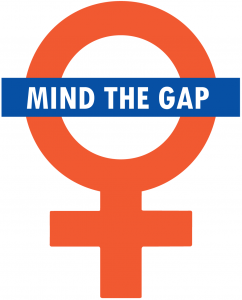
Tolerance, diversity and equality are persistent topics in global business, which I occasionally write about. Specifically, I have repeatedly touched upon the topic of gender inequality, writing about the underrepresentation of women in management, the gender gap within the expat community, and lack of equality for women in the workplace overall. Recently I came across an article in the Economist about the gender pay gap, which made me think that in spite of all the awareness on the topic, there still seems to be only slow progress. Indeed, a recent McKinsey and LeanIn.Org report indicates that for the third year in a row, gender diversity is on top of companies’ agendas, yet progress is hardly visible, if not stagnating. Moreover, the McKinsey professionals argue that it will stay this way, unless we confront the blind spots of diversity.
First of all, it seems that we are fairly blind towards the fact that inequality between men and women starts already in early career steps. It seems that whenever we speak about women underrepresentation we focus on high managerial positions and the C-suite level. Yet, the McKinsey and LeanIn.Org survey indicates that women get less promotions than men from the very beginning: at the entry-level women are 18 percent less likely to be promoted than their male peers, and representation of women declines at every subsequent step. As such, lack of women in management and C-suite positions can be the result of progressing inequality from the entry level. The data on unequal promotions at the entry level is especially disconcerting given that women account for 57% of college graduates. This controversy makes it difficult to justify a gender gap by differences in skill levels, and gives strong evidence of implied gender bias. Moreover, based on the survey data, there are clear indications of racial gaps as well, as women of color experience gender bias on a larger scale. In terms of representation in the corporate pipeline women of color are lagging behind everyone else: white men, men of color, and white women. More specifically, survey data indicate that black women are the most disadvantaged – they perceive least support from managers, be it in terms of advancement advice, or amount of stretch assignments, compared to women of other races.
Secondly, it seems that we are also blind in terms of reality. The survey indicates that at large, men feel comfortable with the status quo and perceive workplaces to be rather equitable. Men are much more likely than women to agree with such statements, as ‘men and women are treated equally fairly’ and ‘both have equal opportunities to advance’. Is it a biased perception, or maybe the bar for equality is too low? Whatever the reasons for feeling comfortable with the status quo though, it comes as no surprise that men tend to be less committed to reducing thr gender gap.
All in all, I continue to stand by my previous conclusions: the gender gap is on the agenda and is spoken about, yet not enough is done about it. This latest overview of the issue by McKinsey and LeanIn.Org indicates that organizations might be not doing enough because it might feel ‘taken care of’ already, or they might be overlooking the origins of the problem, when dealing with attracting more women only to higher management positions. As such, there is still much work to be done to deal with perceptions of the gap and make the gender inequality issue explicitly visible and relevant to men. Practically, when working with gender diversity, we do not need to look only at the C-suite and congratulate ourselves for having a couple of women on boards; we need to cast our net much wider and work towards diversity on all stages of the career pipeline. Finally, when working with gender diversity, we should actually deal with racial diversity as well, because in reality the intersection of gender and race (and probably any other type of diversity for that matter) is what shapes the actual experience in the workplace.


Very interesting article. Gender is a huge problem when you think in how to start a business
Informative information. It’s true gender making discrimination between man and women that’s affects our society. so we should give up discrimination
Thanks
The post provided was excellent
There is a reason why the community moving to next generation of the project
in living the religion of mutual respect is very good. thanks for the sunny 🙂
thanks for information 🙂
this aritcle was really good. I think gender is very important in business.
Nice your post
This is Very Hot Topic,
Gender Gap is stupid thing because on the one side we say, we are evolving species and on the other side, we are playing a game of inequality and color difference and country difference.
We have improved technology which is too much advance as compared to previous civilizations but we have forget to take guidance from ancient civilization about women power and women importance in our civilization and work environment.
Nice post. It depends on the business one can’t differentiate this.
Thanks
The post provided was excellent
Thankyou
that was a wonderful post. keep sharing more
wooooooooow
It’s been argued that professionals/high skilled labour are under threat and thus the new jobs created are going to be more low skilled jobs mainly to sustain these technological advancements.
How true is this assumption?
It’s been argued that professionals/high skilled labour are under threat and thus the new jobs created are going to be more low skilled jobs mainly to sustain these technological advancements.
How true is this assumption?
A debate which will never stop, We differ from our parents, our children will differ from our opinions. This is ever going process, parents should learn how to balance both. Youth Won’t understand the causes.
Interesting read.
Cheers mate.